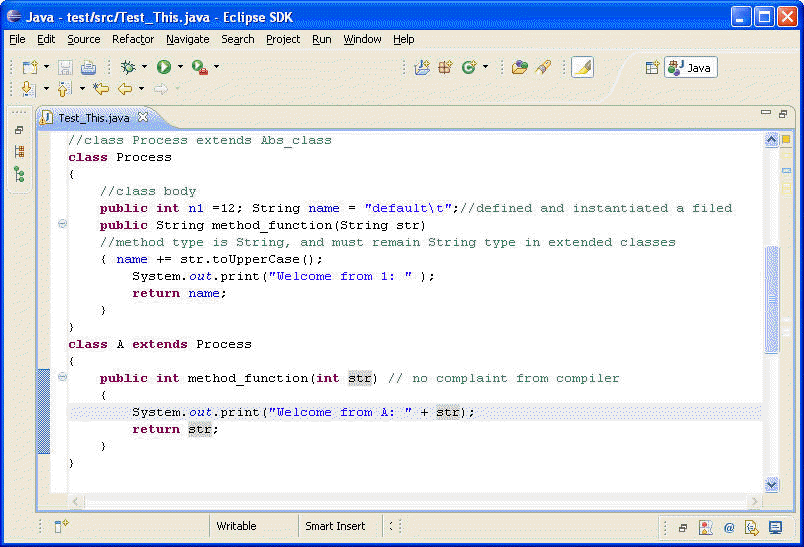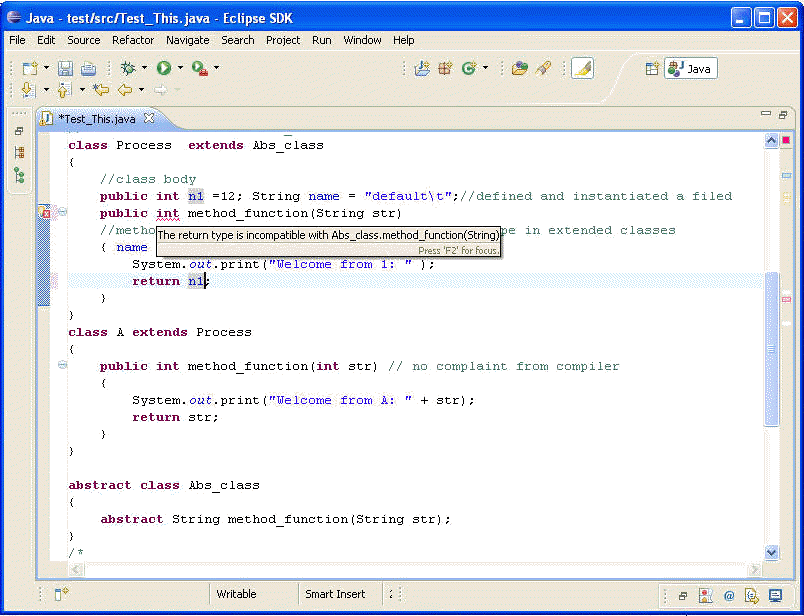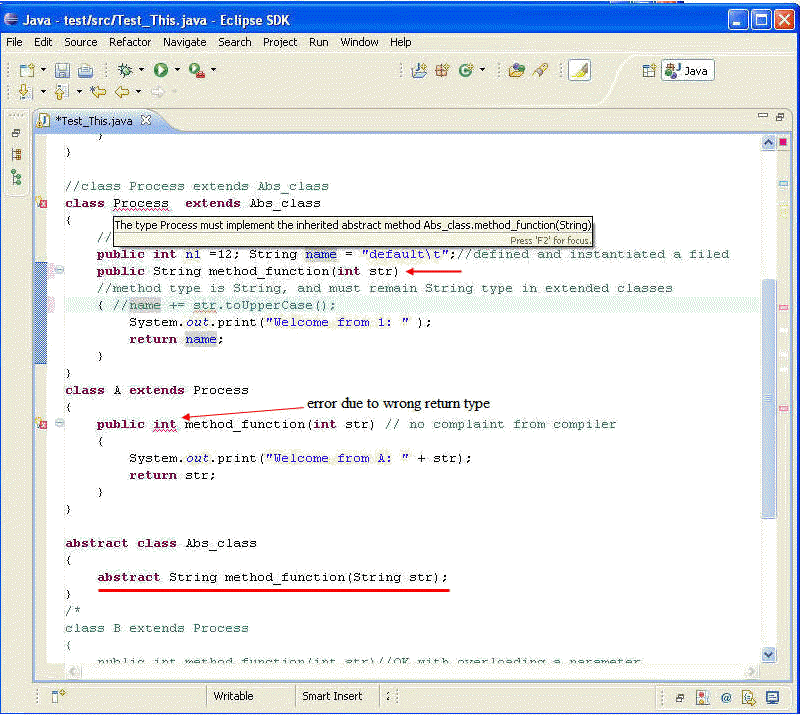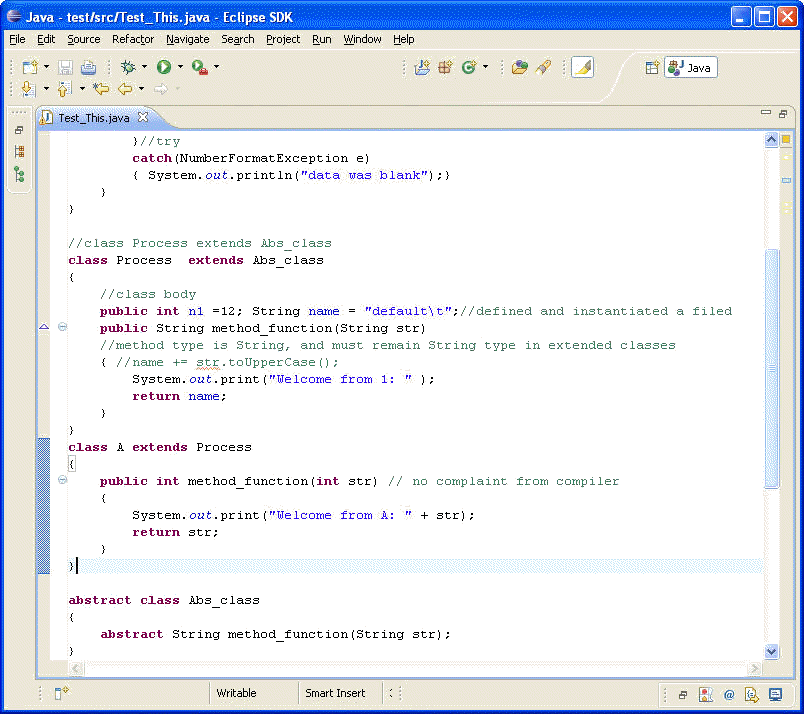



import java.io.*;
//import java.lang.reflect.*;
public class Test_This {
public static void main(String[] args) throws IOException{
// TODO Auto-generated method stub
InputStreamReader isr = new InputStreamReader(System.in);
BufferedReader br = new BufferedReader(isr);
String str ="", str1="";int n1=0, n2 = 1;
Process pp = new Process();//object is created
A aa = new A();
try{
System.out.print("Please write your name: ");
str = br.readLine();
System.out.println("\t"+ pp.method_function(str));
System.out.println("\t"+aa.method_function(str));
System.out.println("\t"+ aa.method_function(12));
}//try
catch(NumberFormatException e)
{ System.out.println("data was blank");}
}
}
class Process extends Abs_class
{
public int n1 =12; String name = "default\t";//defined and instantiated a filed
public String method_function(String str)
//method type is String, and must remain String type in extended classes
{ name += str.toUpperCase();
System.out.print("Welcome from 1: " + str);
return name;
}
}
class A extends Process
{
public int method_function(int str) // no complaint from compiler
{
n1 +=str;
System.out.print("Welcome from A integer: " + str);
return n1;
}
public String method_function(String str) // no complaint from compiler
{
System.out.print("Welcome from A string: " + str);
return name;
}
}
abstract class Abs_class
{
abstract String method_function(String str);
}